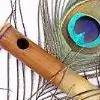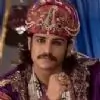Originally posted by: sashashyam
Sensitive and anguished, my dear Sandhya, and I am glad I stumbled on this. But is there no rational thinking or logic left either in Jodha or in Jalal?
Now both of them share the bitterness of their love being the cause of Hussein's death.
How, pray? If Jodha had been on her toes around Hussein, he would have survived for a day or so longer, till he was returned to Ruqaiya, which would in effect mean to Zeenat. Then he would have been poisoned at the first convenient moment. So long as Zeenat was not unmasked, Hussein's fate was in any case sealed. So, the Jodha-Jalal night, or part thereof, together only advanced the timing a bit.
Why does Jalal not grasp this, and why does Jodha not verbalise this?
All this highfalutin' stuff that you and Divya and Adiana and Khushi have been writing, which is basically to console yourself that all is not lost, begs this fundamental fact. I vastly prefer the extract from the Akbar Nama that Divya quotes so often, the one about Jalal-Jodha's sober and mature reaction to the death of twins.
I found this whole track horribly OTT and crude,the only saving grace being the tender and deeply affectionate Jalal-Jodha scenes when he is consoling her after Hasan's death. Both the actors were pitch perfect there. Now this crass Jallad 2.0 is so artificial and forced, having been cooked up for the sole purpose of "explaining" the Chittor massacre.
As for the tilak/aarti scene, I never knew that Rajvanshi women performed this ceremony only when they had decided that the war their husbands were embarking on were morally justified dharmayuddhs!😉 Why, I had been under the mistaken impression that it was an unshakeable tradition meant to protect the warrior's life and gain him victory!!
And in the end she never applied the tilak to his forehead at all, only to the sword, and that sulkily and half-heartedly. If I had been Jalal, I would have been concerned about the efficacy of any such tilak, except of course that he wants to force her to do it to prove his point.
As for Jodha's sharp jibe about Rajvanshi blood, she has clearly forgotten all about the Raja of Panna, who was clobbered by Mansingh and Mirza Hakim for the same crime, of sheltering rebels against the Mughal rule. And does her repeated stress on the Rajvanshi angle mean that it would have been all right if the other side had been Afghans? And did Rajvanshi kings never attack one another for this very reason?
Jodha's objection that thousands of innocents would die was very strange. What did she think happened in wars waged by Rajvanshis among each other? Did she think they decided the outcome thru a dandiya match?
All in all, the only thing I liked about that scene was Jalal's face at the end, a throwback to the good old days.
But by all means carry on with this esoteric soul talk, saagarmanthan (it was Divya's determinedly positive title that brought me here in the first place) and complicated rationalisations. I for one was plain bored by Ekta's latest excess, clearly tailored for ulterior purposes.
After all, Jalal, after Hasan died, was deeply grieved but rational still. And in his heart of hearts he must have feared that Hussein too would die. Why then all this unconvincing melodrama? The kind of intensely protective love towards Jodha that he displayed after Hasan died - how was it transformed into this mixture of self-hatred, passing the buck, and such over loud nastikvaad?
Then again, losing faith in God does not automatically mean that Jalal has to deprive the executioner of his daily bread and cut throats himself, and then pummel the faces of his jungi riyaaz opponents to a bloody pulp. It was stupid and fake and very crude.
It is a clumsy yo yo exercise, and it is going to take all your skills to REALLY explain it. To yourselves, that is, not to me.
Shyamala Aunty

































